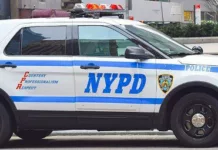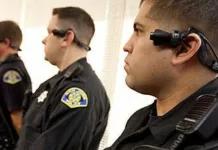
Before we get into the list of police resources, let’s define what a police officer is. A law Police Officer (also known as a law enforcement officer or a cop) is an employee assigned to the police department. Primarily, their duties are to enforce the law and maintain order within the state and its political subdivisions. In some cases, officers may be known as sheriffs and sheriffs deputies. In most cases, the federal, state/provincial, or municipal governments are the employer.
Police officers enforce federal, state, and provincial laws and municipal and city ordinances. Also, they have the responsibility of keeping the public peace. Typically, this involves cops who proactively patrol within their jurisdiction, looking for and investigating lawbreakers. As necessary, they must respond to calls for service.
Police officers must keep records of all situations in which they take action. In addition, they must appear as witnesses during criminal prosecutions and civil litigation. One of the lesser-known but most time-consuming duties of police officers is completing documentation of activity/police reports.
The responsibilities of a Police Officer are broad and not limited to the duties listed here. Police must be able to respond in some fashion to any situations that may arise while they are on duty. Also, police officers must act as government officials in cases of investigation. In some communities, rules and procedures governing the conduct and duties of police officers require that they act if necessary, even when off duty.
Police Resources
There are many excellent organizations and websites dedicated to providing resources for the law enforcement community and related career fields. Here, we’ll highlight some of the most useful sites and provide an overview of what you’ll find on their site.
Whether you’re just beginning to look into the field of police work, or you’re already a seasoned officer, we recommend that you start with PoliceOne.com. PoliceOne.com provides information and resources to help cops protect their communities and stay safer on the streets. A similar site is Officer.com. It provides information on everything from firearms, tactical weapons, technology, the latest news, discussion forums, and more.
If you’re looking for training and development or continuing education, check out our article on Police Training. It provides an overview of what it takes to become a police officer and provides an overview of training companies.
United States Law Enforcement Agencies
Following is a list of the primary law enforcement agencies in the United States:
Bureau of Alcohol, Tobacco, and Firearms (ATF) – The Bureau of Alcohol, Tobacco, Firearms, and Explosives (ATF) is a law enforcement agency within the U.S. Department of Justice. Its unique responsibilities include protecting the public and reducing violent crime. ATF enforces Federal laws and regulations relating to alcohol and tobacco diversion, firearms, explosives, and arson.
Federal Bureau of Prisons – The Bureau is responsible for the custody and care of more than 181,000 Federal offenders in correctional facilities, detention centers, community corrections centers, prisons, and juvenile facilities.
Drug Enforcement Administration (DEA) – The mission of the Drug Enforcement Administration (DEA) is to enforce the controlled substances laws and regulations of the United States. Also, to bring to justice those organizations and principal members of organizations, involved in the growing, manufacturing, or distribution of controlled substances appearing in or destined for illicit traffic in the United States. And to recommend and support non-enforcement programs aimed at reducing the availability of illicit controlled substances on the domestic and international markets.
Federal Bureau of Investigation (FBI) – The investigative arm of the Department of Justice. Learn more about the FBI.
Financial Crimes Enforcement Network – The mission of the Financial Crimes Enforcement Network is to safeguard the financial system from the abuses of financial crime, including terrorist financing, money laundering, and other illicit activity.
Interpol – Interpol exists to help create a safer world. Its aim is to provide a unique range of essential services for the law enforcement community to optimize the international effort to combat crime.
U.S. Marshals Service – The Marshals Service is the nation’s oldest and most versatile federal law enforcement agency. Since 1789, federal marshals have served the nation through a variety of vital law enforcement activities. Ninety-four U.S. marshals, appointed by the president of the U.S. attorney general, direct the activities of 94 district offices and personnel. The Marshals Service has more than 350 locations throughout the 50 states, Guam, Northern Mariana Islands, Puerto Rico, and the Virgin Islands.
As U.S. Marshal heads each district and the District of Columbia Superior Court. The Marshals Service’s headquarters are in the Washington, D.C. area. The Marshals Service occupies a uniquely central position in the federal justice system. Marshals participate in virtually every federal law enforcement initiative. Approximately 4,800 deputy marshals and career employees perform the following nationwide, day-to-day missions.
The National Institute of Justice – NIJ is the research, development, and evaluation agency of the U.S. Department of Justice that researches crime control and justice issues. NIJ provides objective, independent, evidence-based knowledge and tools to meet the challenges of crime and justice, particularly at the State and local levels.
Law Enforcement Associations
Associations are a great way to connect with others within the law enforcement industry, get access to ongoing training and development resources, and network with other professionals. If you’re interested in joining, we recommend starting with the Fraternal Order of Police. It is the largest organization of sworn officers in the world. It provides a wide variety of resources including special programs, legislative updates, relevant news, legal defense support resources, and much more.
Another important organization is the International Association of Chiefs of Police (IACP), which serves as the professional voice of law enforcement. The IACP addresses cutting-edge issues confronting law enforcement through advocacy, programs, and research, as well as training and other professional services.
We also recommend the National Sheriff’s Association. The organization serves as a voice for Sheriffs across the nation and provides an extensive array of resources. For a full list of organizations, see Law Enforcement Associations.
Police Resources for Families
Law enforcement is an extremely dangerous profession. Every day, officers die while they are protecting and serving in their local community. The American Federation of Police & Concerned Citizens is a nationwide program that supports the families of officers killed in the line of duty.
Equipment
If you’re interested in learning about the equipment that police officers use, read the article: Equipment Used by Police Officers. We also have a collection of helpful books, guides, and reference manuals related to police work in our bookstore. Also, check out the NYPD Patternizr Software, which helps solve crime more quickly.
Other Recommended Police Resources
- How to find someone in Prison
- U.S. Army Criminal Investigation Command – As the Army’s primary criminal investigative organization and DoD’s premier investigative organization, CID is responsible for the conduct of criminal investigations in which the Army is, or maybe, a party of interest.
- United States Park Police – National Park Service Agency with a long history of public service dating back to 1791.
If you have any questions about these police resources, please leave a message below.







